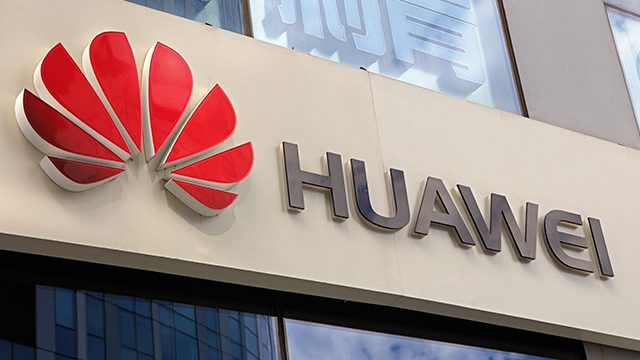SUMMARY
This is AI generated summarization, which may have errors. For context, always refer to the full article.

MANILA, Philippines – Huawei is more ubiquitous in the Philippines than one may think. Aside from the wide range of phones offered by the Chinese telecommunications equipment provider, it also has deals with Smart and Globe for hardware.
But the Senate in late 2018 nonetheless sounded the alarm over the company for its potential hand in a planned surveillance project in the Philippines. (READ: China’s surveillance system coming to the Philippines?)
Besides the Safe Philippines Project, Huawei was also a “platinum sponsor” during the Philippine National Police’s 6th National Anti-Cyber Crime Summit held in March.
Why is the company so controversial?
It’s been banned in a few countries. So far, 4 countries have banned Huawei from building their fifth-generation or 5G networks. These are Japan, Taiwan, Australia, and the US. 5G networks, succeeding 4G, will not only provide faster internet speeds but also seek to optimize what is called the “internet of things.”
The internet of things is a network of connections between devices ranging from smartphones to everyday objects like lamps, headphones, and even automatic cars through a cloud. This means, for instance, that one may be able to control his or her car through a phone in the future.
The US, under Donald Trump’s administration, has been the most vocal in this move to ban the Chinese company over trade and national security issues, with an emphasis on the latter. It is primarily concerned with Huawei’s plans to dominate the arena of 5G networks, which could give economic and even military edge to whoever leads in it.
Hidden backdoors? A recent Bloomberg report revealed that European telecommunications company Vodafone had troubles with “hidden backdoors in the software” that could have spelled out a security issue, giving Huawei “unauthorized access to [Vodafone’s] fixed-line network in Italy” back in 2011 and 2012.
Simply put, a backdoor is vulnerability in a device or software that could allow access to a system by a third party. Western nations like the US are worried that it might be in the interest of Huawei – and by extension, the Chinese government – to use backdoors to collect intelligence on countries where their equipment is used. The intelligence collected may give China the edge commercially or politically.
Though Vodafone clarified that the problems back then were solved, some people involved in the security discussions, according to Bloomberg, revealed that problems remained. In fact, they said that problems were even present outside Italy, in countries like the United Kingdom, Germany, Spain, and Portugal. (READ: European telco Vodafone found backdoors in Huawei equipment – report)
Huawei is reported to have close ties with the Chinese government. Although Huawei has repeatedly said that it is owned by its employees, its alleged close ties with the Chinese government is a matter that still worries the US especially, and other countries in the West generally.
Huawei has denied it has close connections with the Chinese government, but its founder, Ren Zhengfei, was a former officer in the People’s Liberation Army, making it difficult to evade suspicions. It raises the question of whether or not the company may be swayed by powers-that-be in Beijing.
The New York Times, in an April 2019 report, said, “Huawei executives have said repeatedly that they do not act on Beijing’s behalf. But absent the kind of constant, independent scrutiny that a publicly listed company would face, outsiders can only decide whether to take Huawei’s word for it.”
For its part, Huawei has told Forbes that “Huawei is a private company. The Chinese government does not have any ownership or any interference in our business operations. China does not have any law to force any company or business to install backdoors.”
Its chief financial officer is caught up in a legal row. In December 2018, Canadian authorities arrested Huawei’s chief financial officer Meng Wanzhou at Vancouver’s airport. She has since posted bail.
She was accused of fraud linked to the purported violation of sanctions in Iran and ordered arrested by a New York court. It was a charge that led the US to ask a Canadian court to extradite the Huawei executive.
Her arrest sparked tensions between the Chinese and Canadian governments. Her extradition hearings are set for Wednesday, May 8. – Rappler.com
Add a comment
How does this make you feel?
There are no comments yet. Add your comment to start the conversation.